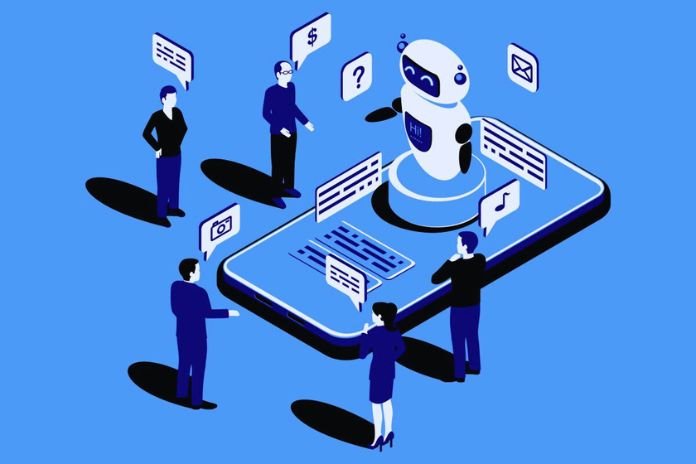How Chatbots Are Transforming Our Interactions With Data?

The improvement of computer-based intelligence, dad, fundamentally convert, public simulated intelligence, likewise helps Chatbots, which “are entering another period and preparing for the democratization of information.” Chatbots have been essential for our perusing and collaboration propensities for quite some time.
They are, in some cases, intrusive. We recall their outset and the troubles innate in a moderately shut model, making them hard to utilize. With the explosion of artificial reasoning (especially conversational artificial intelligence), chatbots are entering another period and preparing for the democratization of information.
When The Chatbot Uses AI
If chatbots have just, at times, fulfilled clients, the approach of conversational computer-based intelligence has offered them new viewpoints. The incredible strength of casual computer-based intelligence is that it gives the deception of human exchange every day. The client can now “talk” with the machine, as he would normally, without scrutinizing the proper method for figuring out his solicitation.
Chatbots depend on codes similar to texting and are immovably secured in day-to-day propensities. This advancement was essential for chatbots, eliminating the primary deterrent of the intricacy of purpose or the trouble in acquiring the hotly anticipated reaction.
We rapidly need to recollect the principal traps despite the force of these little discourse boxes that further develop client relations or after-deals administration and keep on thriving in many locales, mostly web-based businesses. What is the future of chatbots? Their pertinence in client relations should never again be illustrated. Even so, there are numerous regions where chatbots have a splendid future in front of them, especially in promoting information inside business applications.
A Lever In The Adoption Of Data By Businesses
Companies must manage more and more data, regardless of expertise, whether it is customer, market, or even internal data. However, “data” looks pretty complex and difficult to understand. The challenge of making this data accessible to as many people as possible without technical skills could be met by chatbots trained in conversational AI and fed into structured company data.
Chatbots make it possible to overcome the difficulties of accessibility to data, management of tools, performance, and volume of data. They can compile, analyze, and provide an intelligible and precise summary to the user. In other words, it’s a very effective way for businesses to approach self-BI. More generally, chatbots are becoming allies in decision-making in a desire to democratize data: they combine ease of use, speed of restitution, and contextualization of information.
Chatbots, The Miracle Solution For Self BI?
Although they are highly relevant today, chatbots are still in the last chapter of their history. Several challenges remain for this technology, which continues to evolve. Today’s chatbots can have difficulty managing heterogeneous data sources and specific formats ( PowerPoint, PDF, or other more exotic formats). This is an obstacle to the mass adoption of chatbots within companies that know that they use many different file formats.
The other point of vigilance concerns data security since the implementation of conversational AI may raise questions about respecting the confidentiality of the data of the chosen third party (notably Open AI with ChatGPT ).
Today, chatbots are paving the way for the democratization of data and data visualization by giving the entire company control over a scope previously guarded by data experts. Although we still expect many developments from the model to make it even more efficient in the future, ease of access is improving daily thanks to conversational AI, which is interoperable with client environments such as Microsoft Power Platform or even Qlik.
Read Also: What’s New On YouTube To Improve The Video Experience






